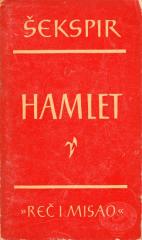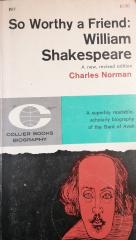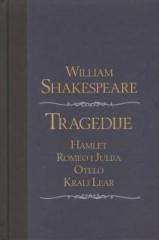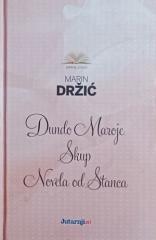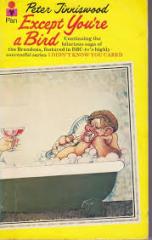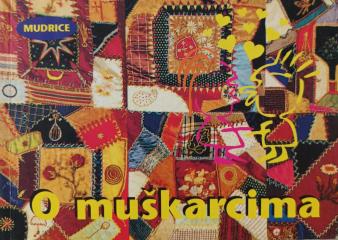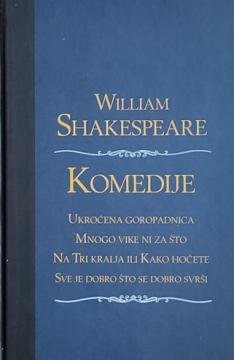
Komedije: Ukroćena goropadnica / Mnogo vike ni za što / Na Tri kralja ili Kako hoćete / Sve je dobro što se dobro svrši
The Taming of the Shrew, Much Ado About Nothing, Three Kings Day or As You Like It, and All's Well That Ends Well - are masterpieces by the English playwright, known for his wit, romantic plots, and exploration of human relationships.
The Taming of the Shrew (1590–1592) follows Petruchio, who marries the headstrong Catherine in order to obtain a dowry. His attempts to “tame” her rebellious nature, through psychological games and domineering behavior, provoke controversy, but end with her seeming obedience. The comedy explores power dynamics in marriage and gender roles, with witty dialogue and satire.
Much Ado About Nothing (1598–1599) deals with love and misunderstandings. Claudio and Hero are in love, but a false accusation of infidelity threatens their happiness. At the same time, Benedick and Beatrice engage in a humorous “war” of words, unwittingly falling in love with each other with the help of friends. The plot resolves with a happy ending, exposing lies and celebrating love. The comedy highlights themes of trust and deception.
In Three Kings or As You Like It (1601–1602) he intertwines love triangles and a game of identity. Viola, disguised as the man Cesario, serves Duke Orsini, who is in love with Olivia. Olivia falls in love with “Cesario,” while Viola’s brother Sebastian causes further confusion. With the side story of Malvolio, the comedy celebrates carnival madness and love, ending with marriages.
All's Well That Ends Well (1604–1605) is a darker comedy. Helena, a modest girl, loves Bertram, who rejects her. Through cunning and "bed-swapping," Helena secures his love and marriage. The play explores moral dilemmas, loyalty, and redemption, with a happy ending.
All comedies combine humor, romance, and social criticism, making Shakespeare a timeless master.
Two copies are available
